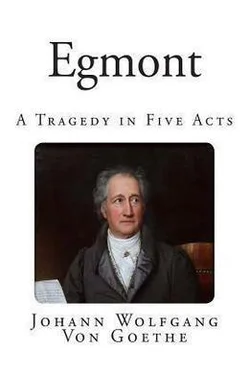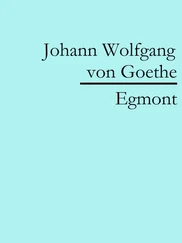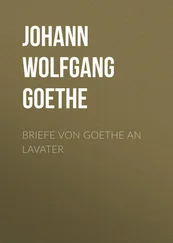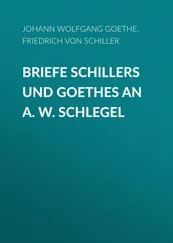Johann von Goethe - Egmont
Здесь есть возможность читать онлайн «Johann von Goethe - Egmont» весь текст электронной книги совершенно бесплатно (целиком полную версию без сокращений). В некоторых случаях можно слушать аудио, скачать через торрент в формате fb2 и присутствует краткое содержание. Год выпуска: 2015, Издательство: epubBooks Classics, Жанр: Драматургия, на английском языке. Описание произведения, (предисловие) а так же отзывы посетителей доступны на портале библиотеки ЛибКат.
- Название:Egmont
- Автор:
- Издательство:epubBooks Classics
- Жанр:
- Год:2015
- ISBN:нет данных
- Рейтинг книги:4 / 5. Голосов: 1
-
Избранное:Добавить в избранное
- Отзывы:
-
Ваша оценка:
- 80
- 1
- 2
- 3
- 4
- 5
Egmont: краткое содержание, описание и аннотация
Предлагаем к чтению аннотацию, описание, краткое содержание или предисловие (зависит от того, что написал сам автор книги «Egmont»). Если вы не нашли необходимую информацию о книге — напишите в комментариях, мы постараемся отыскать её.
Egmont — читать онлайн бесплатно полную книгу (весь текст) целиком
Ниже представлен текст книги, разбитый по страницам. Система сохранения места последней прочитанной страницы, позволяет с удобством читать онлайн бесплатно книгу «Egmont», без необходимости каждый раз заново искать на чём Вы остановились. Поставьте закладку, и сможете в любой момент перейти на страницу, на которой закончили чтение.
Интервал:
Закладка:
Egmont. Why, he would come, and he also would have business enough upon his hands. He would arrive with vast projects and schemes to reduce all things to order, to subjugate and combine; and to–day he would be occupied with this trifle, to–morrow with that, and the day following have to deal with some unexpected hindrance. He would spend one month in forming plans, another in mortification at their failure, and half a year would be consumed in cares for a single province. With him also time would pass, his head grow dizzy, and things hold on their ordinary course, till instead of sailing into the open sea, according to the plan which he had previously marked out, he might thank if, amid the tempest, he were able to keep his vessel off the rocks.
Orange. What if the king were advised to try an experiment?
Egmont. Which should be—?
Orange. To try how the body would get on without the head.
Egmont. How?
Orange. Egmont, our interests have for years weighed upon my heart; I ever stand as over a chess–board, and regard no move of my adversary as insignificant; and as men of science carefully investigate the secrets of nature, so I hold it to be the duty, ay, the very vocation of a prince, to acquaint himself with the dispositions and intentions of all parties. I have reason to fear an outbreak. The king has long acted according to certain principles; he finds that they do not lead to a prosperous issue; what more probable than that he should seek it some other way?
Egmont. I do not believe it. When a man grows old, has attempted much, and finds that the world cannot be made to move according to his will, he must needs grow weary of it at last.
Orange. One thing has yet to be attempted.
Egmont. What?
Orange. To spare the people, and to put an end to the princes.
Egmont. How many have long been haunted by this dread? There is no cause for such anxiety.
Orange. Once I felt anxious; gradually I became suspicious; suspicion has at length grown into certainty.
Egmont. Has the king more faithful servants than ourselves?
Orange. We serve him after our own fashion; and, between ourselves, it must be confessed that we understand pretty well how to make the interests of the king square with our own.
Egmont. And who does not? He has our duty and submission, in so far as they are his due.
Orange. But what if he should arrogate still more, and regard as disloyalty what we esteem the maintenance of our just rights?
Egmont. We shall know in that case how to defend ourselves. Let him assemble the Knights of the Golden Fleece; we will submit ourselves to their decision.
Orange. What if the sentence were to precede the trial? punishment, the sentence?
Egmont. It were an injustice of which Philip is incapable; a folly which I cannot impute either to him or to his counsellors.
Orange. And how if they were both unjust and foolish?
Egmont. No, Orange, it is impossible. Who would venture to lay hands on us? The attempt to capture us were a vain and fruitless enterprize. No, they dare not raise the standard of tyranny so high. The breeze that should waft these tidings over the land would kindle a mighty conflagration. And what object would they have in view? The king alone has no power either to judge or to condemn us and would they attempt our lives by assassination? They cannot intend it. A terrible league would unite the entire people. Direful hate and eternal separation from the crown of Spain would, on the instant, be forcibly declared.
Orange. The flames would then rage over our grave, and the blood of our enemies flow, a vain oblation. Let us consider, Egmont.
Egmont. But how could they effect this purpose?
Orange. Alva is on the way.
Egmont. I do not believe it.
Orange. I know it.
Egmont. The Regent appeared to know nothing of it.
Orange. And, therefore, the stronger is my conviction. The Regent will give place to him. I know his blood–thirsty disposition, and he brings an army with him.
Egmont. To harass the provinces anew? The people will be exasperated to the last degree.
Orange. Their leaders will be secured.
Egmont. No! No!
Orange. Let us retire, each to his province. There we can strengthen ourselves; the Duke will not begin with open violence.
Egmont. Must we not greet him when he comes?
Orange. We will delay.
Egmont. What if, on his arrival, he should summon us in the king's name?
Orange. We will answer evasively.
Egmont. And if he is urgent?
Orange. We will excuse ourselves.
Egmont. And if he insist?
Orange. We shall be the less disposed to come.
Egmont. Then war is declared; and we are rebels. Do not suffer prudence to mislead you, Orange. I know it is not fear that makes you yield. Consider this step.
Orange. I have considered it.
Egmont. Consider for what you are answerable if you are wrong. For the most fatal war that ever yet desolated a country. Your refusal is the signal that at once summons the provinces to arms, that justifies every cruelty for which Spain has hitherto so anxiously sought a pretext. With a single nod you will excite to the direst confusion what, with patient effort, we have so long kept in abeyance. Think of the towns, the nobles, the people; think of commerce, agriculture, trade! Realize the murder, the desolation! Calmly the soldier beholds his comrade fall beside him in the battlefield. But towards you, carried downwards by the stream, shall float the corpses of citizens, of children, of maidens, till, aghast with horror, you shall no longer know whose cause you are defending, since you shall see those, for whose liberty you drew the sword, perishing around you. And what will be your emotions when conscience whispers, "It was for my own safety that I drew it "?
Orange. We are not ordinary men, Egmont. If it becomes us to sacrifice ourselves for thousands, it becomes us no less to spare ourselves for thousands.
Egmont. He who spares himself becomes an object of suspicion ever to himself.
Orange. He who is sure of his own motives can, with confidence, advance or retreat.
Egmont. Your own act will render certain the evil that you dread.
Orange. Wisdom and courage alike prompt us to meet an inevitable evil.
Egmont. When the danger is imminent the faintest hope should be taken into account.
Orange We have not the smallest footing left; we are on the very brink of the precipice.
Egmont. Is the king's favour on ground so narrow?
Orange. Not narrow, perhaps, but slippery.
Egmont. By heavens! he is belied. I cannot endure that he should be so meanly thought of! He is Charles's son, and incapable of meanness.
Orange. Kings of course do nothing mean.
Egmont. He should be better known.
Orange. Our knowledge counsels us not to await the result of a dangerous experiment.
Egmont. No experiment is dangerous, the result of which we have the courage to meet.
Orange. You are irritated, Egmont.
Egmont. I must see with my own eyes.
Orange. Oh that for once you saw with mine! My friend, because your eyes are open, you imagine that you see. I go! Await Alva's arrival, and God be with you! My refusal to do so may perhaps save you. The dragon may deem the prey not worth seizing, if he cannot swallow us both. Perhaps he may delay, in order more surely to execute his purpose; in the meantime you may see matters in their true light. But then, be prompt! Lose not a moment! Save,—oh, save yourself! Farewell!—Let nothing escape your vigilance:—how many troops he brings with him; how he garrisons the town; what force the Regent retains; how your friends are prepared. Send me tidings—Egmont—Egmont. What would you?
Orange (grasping his hand). Be persuaded! Go with me!
Egmont. How! Tears, Orange!
Читать дальшеИнтервал:
Закладка:
Похожие книги на «Egmont»
Представляем Вашему вниманию похожие книги на «Egmont» списком для выбора. Мы отобрали схожую по названию и смыслу литературу в надежде предоставить читателям больше вариантов отыскать новые, интересные, ещё непрочитанные произведения.
Обсуждение, отзывы о книге «Egmont» и просто собственные мнения читателей. Оставьте ваши комментарии, напишите, что Вы думаете о произведении, его смысле или главных героях. Укажите что конкретно понравилось, а что нет, и почему Вы так считаете.












